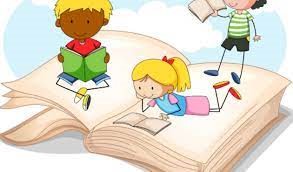By Jabulile Sibisi - Mshengu
Now it’s time for you to relax
and have fun but not sure where to start. Why don’t you relax with a book?
Looking for pleasurable reading,
nothing lengthy? UKZN libraries have lots of reading material for your leisure
reading, something to pass the time on your study break, that is leisure
reading, as opposed to reading for assignments or exams.
According to Cawley (2023)
leisure reading, also known as recreational reading, pleasure reading, free
voluntary reading, and independent reading, is independent, self-selected
reading of a continuous text for a wide range of personal and social purposes.
It can take place in and out of university, at any time.
Moreover, Mkhabela (2022) point
out that readers select from a wide range of extended texts, including but not
exclusive to narrative fiction, nonfiction, picture books, e-books, magazines,
social media, blogs, websites, newspapers, comic books, and graphic novels.
Leisure reading is generally intrinsically or socially motivated and a
pleasurable activity for the reader.
Here are a few benefits of
reading for leisure or pleasure: -
- To reduce psychological distress after the exam.
- To improve reading literacy
- To improve vocabulary and literacy skills.
- To understand different people's cultures
- To improve general knowledge
RELAX, HAVE FUN, LAUGH UNTIL YOU
HAVE A PAINFUL TUMMY
References
Cawley, H. (2023). Leisure
Reading — Literature https://libguides.library.nd.edu/leisure-reading
Mkhabela, D. E. (2022). Leisure
reading experiences: the case study of young adult-readers at the University of
Mpumalanga (Doctoral dissertation).
https://www.lindawasylciw.ca/reading-to-pleasure-vs-reading-for-learning-pleasure/


